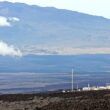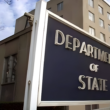The Fukushima accident has not served as a wake-up call in Japan
March 22, 2016
The Fukushima accident has not served as a wake-up call in Japan
The Japanese government insists that nuclear safety has been enhanced after the Fukushima accident due to the enforcement of new regulatory standards, which Prime Minister Shinzo Abe has referred to as the world’s best, and the new nuclear safety regulatory regime. However, the government has yet to confront the intrinsic risks of nuclear power and continues to avoid discussing its distorted policy of promoting nuclear power.
For many years, Japan was the only country without a safety goal for its nuclear power sector. After the Fukushima accident, the country did finally set a safety goal: “The amount of radioactive materials released to the environment in a severe accident must be less than 100 tera-becquerel.” On the contrary, the amount of a large-scale release is not a criterion in the United States. Instead, the country has established that nuclear power use should not lead to a significant increase in social risk, and that radiation-induced cancer mortality risk should not exceed 0.1 percent of the total of all cancer mortality risks. The Japanese government is purposely not providing specific descriptions of the life-threatening risks of nuclear energy, in order to avoid public backlash.
Also, local governments that have agreed to let nuclear power plants be located in their jurisdiction can receive large subsidies from the government, based on a nuclear power plant’s operating performance. Although most of the nuclear power plants are shut down at present, the Japanese government has continued to give subsidies. By changing the subsidy system, the national government has maintained local governments’ economic dependency, as if continuing to give them drugs to keep them hooked. In other words, local governments which receive subsidies cannot afford to break away from the nuclear power, even if they fear it.
Ironically, right here in Japan, the Fukushima accident has not served as a “wake-up call” that makes the government or the nuclear industry pay attention to nuclear risks.
Tadahiro Katsuta
Associate professor
EXPERT COMMENTARY
Meiji University













